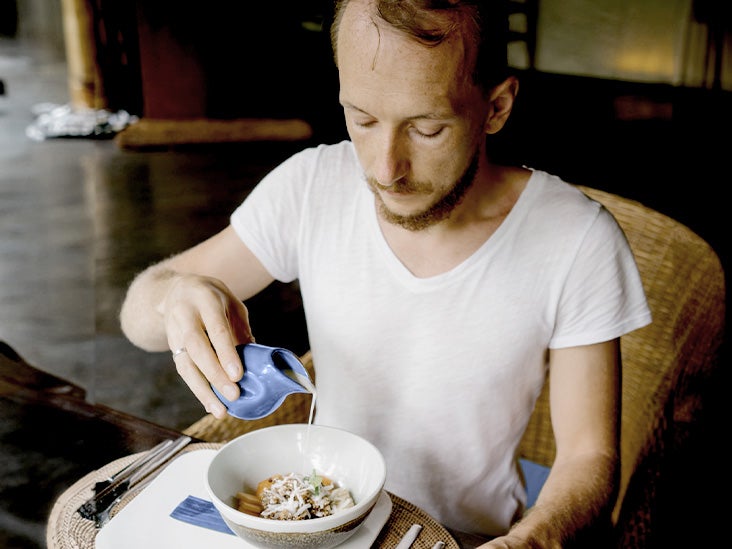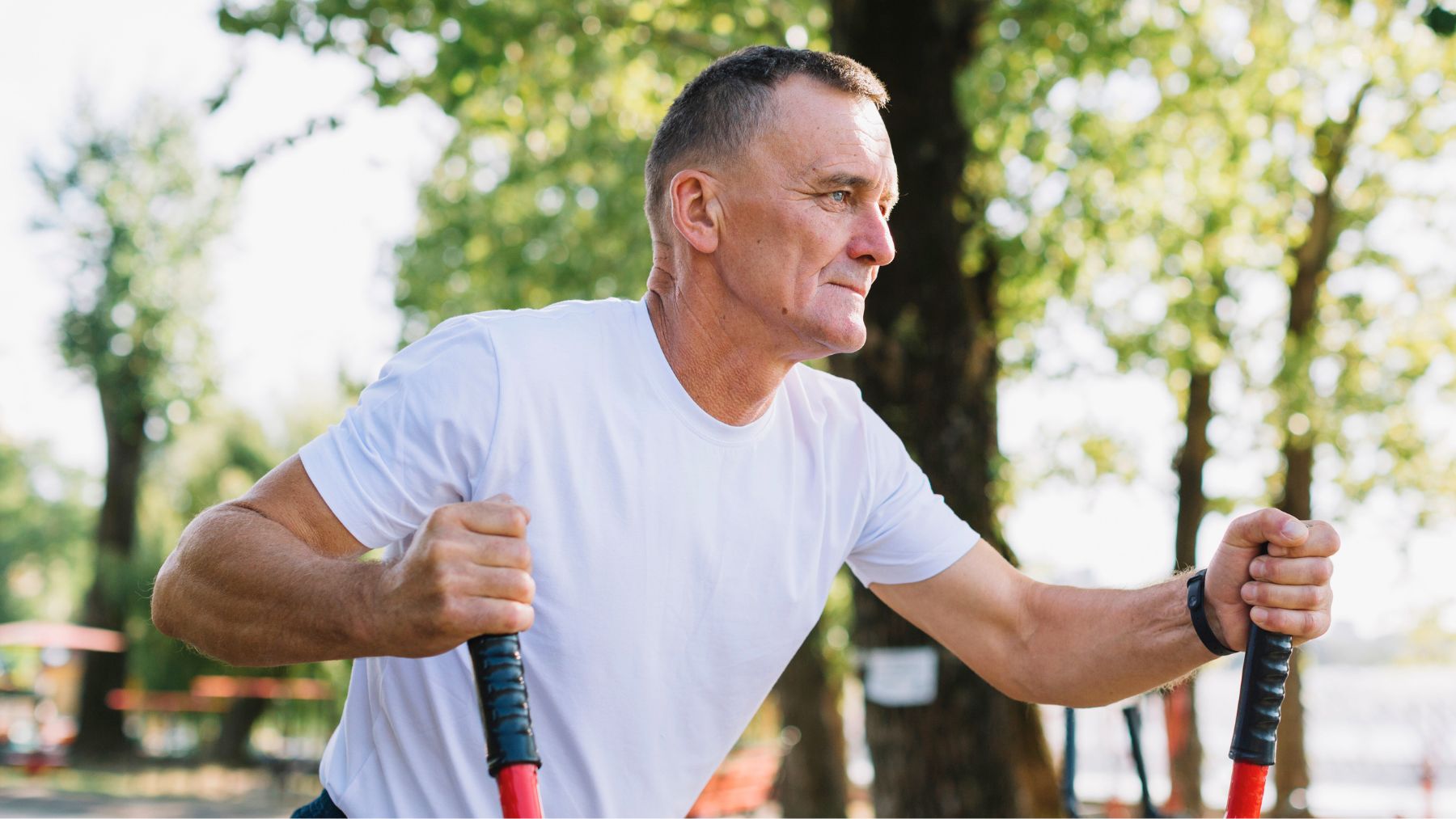Tips for boosting the immune system during chemo

Although chemotherapy helps kill cancer cells, it can also affect healthy white blood cells, weakening the immune system. Eating nutritious foods, exercising, and avoiding illnesses are some ways to remedy this.
Reducing stress, sleeping well, and avoiding alcohol and tobacco can also help protect a person’s immune system.
This article outlines seven methods for helping maintain a strong immune system during chemo.
Eating a nutrient-dense, balanced diet throughout chemo
However, chemo and other cancer treatments can cause side effects that may affect a person’s nutritional intake. Chemo can also affect the way the body processes and metabolizes nutrients.
According to the University of California, San Francisco, some common side effects of chemotherapy include:
Click here for more information on how to manage chemo side effects.
The
The American Cancer Society provides the following tips for increasing intake of calories and protein:
- snacking throughout the day
- eating favorite foods at any time of the day
- eating every few hours, not just when feeling hungry
- drinking high calorie and high protein beverages, such as milkshakes and liquid supplements
- aiming to drink fluids between meals instead of during meals to reduce feelings of fullness at mealtimes
- trying homemade or commercially prepared nutrition bars
- exercising lightly before mealtimes to increase appetite
A doctor or dietitian can offer further advice about the best diet to follow during chemo.
According to the
- brain and body function
- physical health, including:
- bone health
- muscle strength
- range of motion
- mental health
- immune function
- sleep
- appetite
- weight management
- overall quality of life
According to the American Cancer Society, regular physical exercise can also help alleviate treatment side effects.
A 2022 study investigated whether starting an exercise program during chemo had more positive effects on long-term cardiorespiratory fitness than starting an exercise program after chemo.
In the study, 266 participants with cancer took part in a 12-week, supervised exercise program followed by 12 weeks of unsupervised exercise.
One group carried out the program during chemo, while the other carried out the program after completing chemo. Researchers assessed participants’ health at various intervals throughout the study.
Compared with people who started exercising after chemo, people who started exercising during chemo had:
- less fatigue
- less loss of muscle mass
- less overall loss of fitness
One year after completing the exercise program, participants in both groups:
- reported similar levels of fatigue
- regained the muscle strength they had before starting chemo
- reported better health-related quality of life than they reported before starting chemo
These findings suggest that:
- exercising during chemo has greater immediate health benefits than exercising after completing chemo
- exercise at any stage of treatment can aid recovery from chemo
Sleep is important for both mental and physical health. According to the
However, sleep problems are
The National Cancer Institute provides the following tips for managing sleep problems and improving sleep during chemo:
- Tell a doctor about cancer symptoms or treatment side effects that are interfering with sleep.
- Try cognitive behavioral therapy (CBT) or relaxation therapy.
- Practice good sleep hygiene, which may include:
- going to bed only when tired
- ensuring the sleep environment is dark, cool, and comfortable
- avoiding looking at television or computer screens within a couple of hours of bedtime
- avoiding exercising within a few hours of bedtime
- avoiding eating a large meal before bedtime
A
Cancer Research UK notes that the occasional glass of wine or beer is unlikely to cause issues during chemotherapy.
However, alcohol can interact with certain chemotherapy drugs, making a person feel unwell. The healthcare professional prescribing or administering the chemotherapy can advise on whether it is safe to consume alcohol.
Like alcohol, smoking can
According to the
- second primary cancers related to smoking
- other chronic health conditions
- premature death
The World Health Organization (WHO) notes that tobacco smoke can affect how the body metabolizes certain chemo drugs, making these medications less effective.
Specifically, the chemicals in tobacco smoke can cause the body to clear certain chemo drugs more quickly, meaning these medications have less time to work on destroying cancer.
The American Lung Association offers the following guidance for people looking to quit smoking:
- Ask a doctor about medications or resources that can help with smoking cessation.
- Tell family and friends about the intention to quit smoking and ask for their support.
- Join an online or in-person support group for people who are trying to quit smoking.
- Contact a smoking cessation helpline, such as the American Lung Association’s Lung HelpLine and Tobacco QuitLine at 800-LUNGUSA (800-586-4872 and press 2).
According to the
These hormones may increase the risk of cancer cells becoming resistant to chemo drugs. They may also prevent the immune system from detecting and destroying cancer cells.
The
- Get regular physical activity during and after cancer treatment.
- Request a doctor’s referral to a mental health professional.
- Try talk therapy, such as CBT.
- Join an online or in-person support group for people living with cancer.
Chemotherapy can temporarily
Below are some tips on how to avoid infections during chemo.
Practice regular handwashing
People undergoing chemo should wash their hands regularly and thoroughly to help reduce their infection risk.
The
- after blowing the nose, coughing, or sneezing
- after going to the bathroom
- after changing diapers or helping a child use the bathroom
- after touching or cleaning up after a pet
- before, during, and after preparing, cooking, and eating food
- after touching garbage
- before and after touching an open wound
- before and after handling an access device, such as a catheter or port
Practice good food hygiene
People undergoing chemo are at particular risk of contracting foodborne illnesses from bacteria, viruses, or parasites.
The
- Refrigerate perishable goods at or below 40°F (4.4°C) within 2 hours of purchasing or preparing.
- Store raw meat in sealed containers away from food that is ready to eat.
- Thaw meat, poultry, and fish in a refrigerator or microwave, not at room temperature.
- Use a food thermometer to check that meats are cooked to 160°F (71.1°C) and poultry is cooked to 180°F (82.2°C).
- Use different chopping boards for raw and cooked meats.
- Thoroughly wash fruits and vegetables under running water before peeling or preparing them, even if they are labeled “prewashed.”
- Wash the tops of canned foods before opening them.
- Use different utensils for stirring and tasting foods during cooking.
- Throw away produce that is out of date or looks or smells moldy.
- Avoid eating the following foods:
- raw vegetable sprouts
- unpasteurized beverages
- foods from a deli or self-serve counter
Other tips to avoid illness
Some additional tips to help avoid illness during chemotherapy
- washing hands after using public transport or visiting a public place
- using an alcohol-based sanitizer to clean the hands when soap and water are not available
- avoiding large crowds of people
- wearing a face mask in crowded areas
- staying away from anyone who has a fever or infection
- receiving a yearly flu shot and encouraging other household members to do the same
- using moist antibacterial cleaning wipes to clean and disinfect surfaces within the home or work environment
- bathing daily and checking the body for wounds or sores that may require treatment
- avoiding manicures or pedicures at salons or spas
- avoiding hot tubs or swimming in outdoor areas
- not sharing towels
- not sharing utensils or cups with others
Below are some answers to frequently asked questions about chemotherapy and the immune system.
What vitamins boost the immune system after chemotherapy?
According to a
- vitamin A
- vitamin D
- vitamin C
- vitamin E
- vitamin B6
- vitamin B12
- copper
- folate
- iron
- selenium
- zinc
Most people can get the necessary amounts of the above nutrients from food. However, a doctor may prescribe vitamin or mineral supplements if a person’s cancer treatment has temporarily impaired their body’s ability to absorb certain nutrients.
When is the immune system weakest during chemo?
Among the various cancer treatments, chemotherapy is the
Chemotherapy reduces the number of WBCs. Neutrophils are a type of WBC that act as the body’s first line of defense, killing pathogens at the first sign of infection.
According to Breastcancer.org, neutrophil levels begin to decline around 1 week after the first chemo cycle and continue to drop for another week or so. Levels then begin to climb again before the next treatment cycle.
A person undergoing chemotherapy will receive regular blood tests to monitor their neutrophil levels. Regular monitoring can help doctors assess how the immune system is functioning.
Eating nutritious food, exercising regularly, and sleeping well are good ways to boost immunity during chemotherapy.
Other methods include managing stress levels, avoiding or limiting alcohol, and quitting smoking if applicable. It is also a good idea to limit exposure to germs.
A person can talk with their doctor or cancer team for more individualized advice on boosting their immune system during chemo.
link




